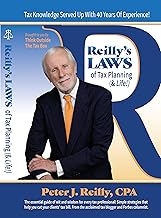I just finished looking at Paul Ryan’s returns. They were pretty unexciting. The return showed a little over 1,000 bucks for tax preparation in both 2010 and 2011 (probably for his 2009 and 2010 returns). Shows you what interests me. He also changed accountants. I’m going to have to look into that if I get around to it as I have already written about the candidates for First Accountant. The only controversial tax break I noted on the returns was percentage depletion, although it really did not amount to that much.
When I sat down at the computer I was planning to write a post on whether we should care about Romney’s unreleased returns, but I had a message from Janet Novack, my esteemed editor, that the Ryan returns had been released. I thought I better look. That had me thinking about why I bother writing about candidate returns. I realized it is because I have this wealth of moderately arcane knowledge that I have gathered both from experience and from reading way more original source tax material than most tax practitioners. Mostly I write about recently decided cases, but when a tax return is thrust into public, I like to see if I have anything original to offer. A tax topic like the passive activity loss rules can be of more general interest when it is applied to Olympic dancing by a Romney owned horse. I select tax material to write that provides practical lessons, humor and matter for reflection. You can look elsewhere to see what percentage he paid and the like. Paul Ryan’s return has a practical lesson. The lesson is that sometimes it is a really good idea to go on extension. The 2012 tax season (for 2011 returns) was definitely one of those times for Paul Ryan.
Why Extend ?
How can I say that with such assurance ? Paul Ryan had to amend his return. The reason he had to amend was because a K-1 was omitted from the return as originally filed. The K-1 was from the Prudence Little Living Trust. It was understandable that it was missed because it was for the initial fiscal year of the trust. Prudence Little was Congressman Ryan’s mother-in-law, who died May 22 2010.
Living Trust ?
Forgive me if this seems condescending, but there might be readers who are wondering why the initial return for a “living trust” would be filed after someone is no longer living. When it comes to individual income tax, you file the final return after they an individual dies. A “living trust”. however, is usually considered a grantor trust while the person who created the trust (i.e. the grantor) is alive. For the most part it is ignored for income tax purposes and whatever transactions it has are reflected on the individual return of the grantor. Typically at the death of the grantor, the trust becomes a separate taxable entity at least for a while and often for a very long time. Why do they still call it the Prudence Little Living Trust ? Because that is its name. Trusts can pay taxes themselves or pass the taxable income to the beneficiaries. I know that you are dying for me to explain distributable net income and the differences between accounting income and taxable income, but I’m just not going to do it.
Poor Paul Mair
If I had signed the Ryan 2011 return as originally filed I would be upset. Paul Mair of Summit Accounting Group Inc. is probably not really pleased either. It is quite possible that he is not at all to blame though. The Prudence Little Living Trust Form 1041 was perhaps prepared by a different firm. Given Ms. Little’s date of death the K-1 for the initial fiscal year, even if extended, should have been available by the due date of the Ryan return, but possibly just barely. In order for the Ryans to have been taxable on the trust income they must have received distributions, but distributions can be out of corpus and not taxable. Still, one would want to have had it really clear with the trustee of the trust before going ahead and filing Paul Ryan’s return. Clearly something slipped. The error was caught relatively quickly with the amended return dated in May, but if they had filed for extension, the problem could have been totally averted.
Was It Politics ?
Given the unfair grief that Romney has been given about going on extension, it may be that Summit Accounting Group was charged to avoid going on extension at all costs. If the preparer of the 1041 was pokey or uncooperative, they were left between a rock and a hard place. The 2010 return signed by Craig Nemeth of Baker Tilly Virchow Krause, LLP was dated in June, so the Ryans have gone on extension in the past. At any rate, none of this has anything to do with Paul Ryan’s fitness for the presidency. It is just that the return is in the news and it has a useful lesson in it.
You can follow me on twitter @peterreillycpa.
Originally published on Forbes.com on August 17th. 2012































































































